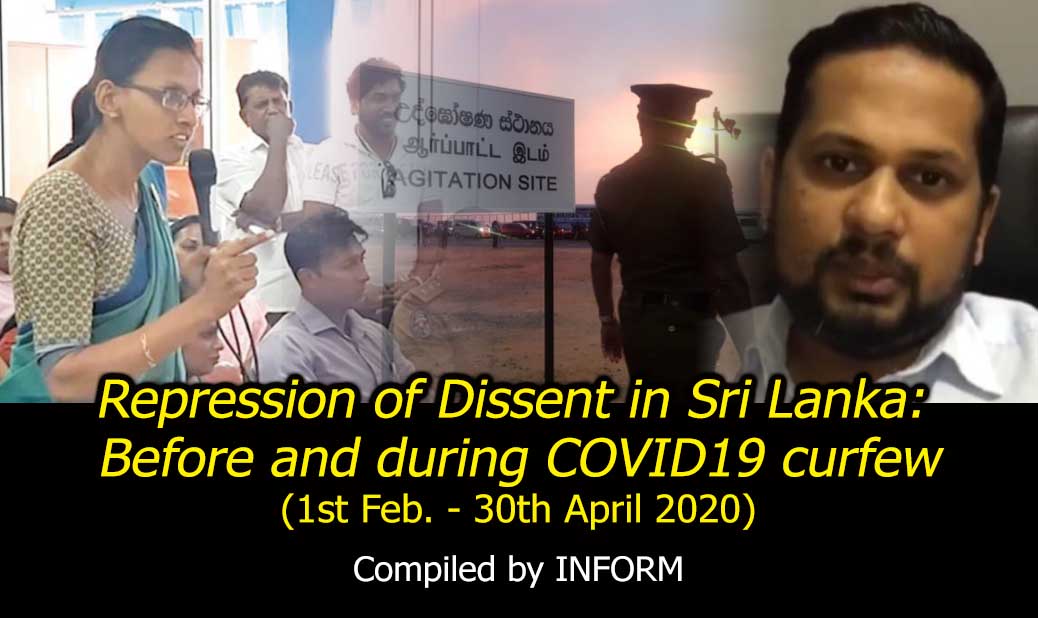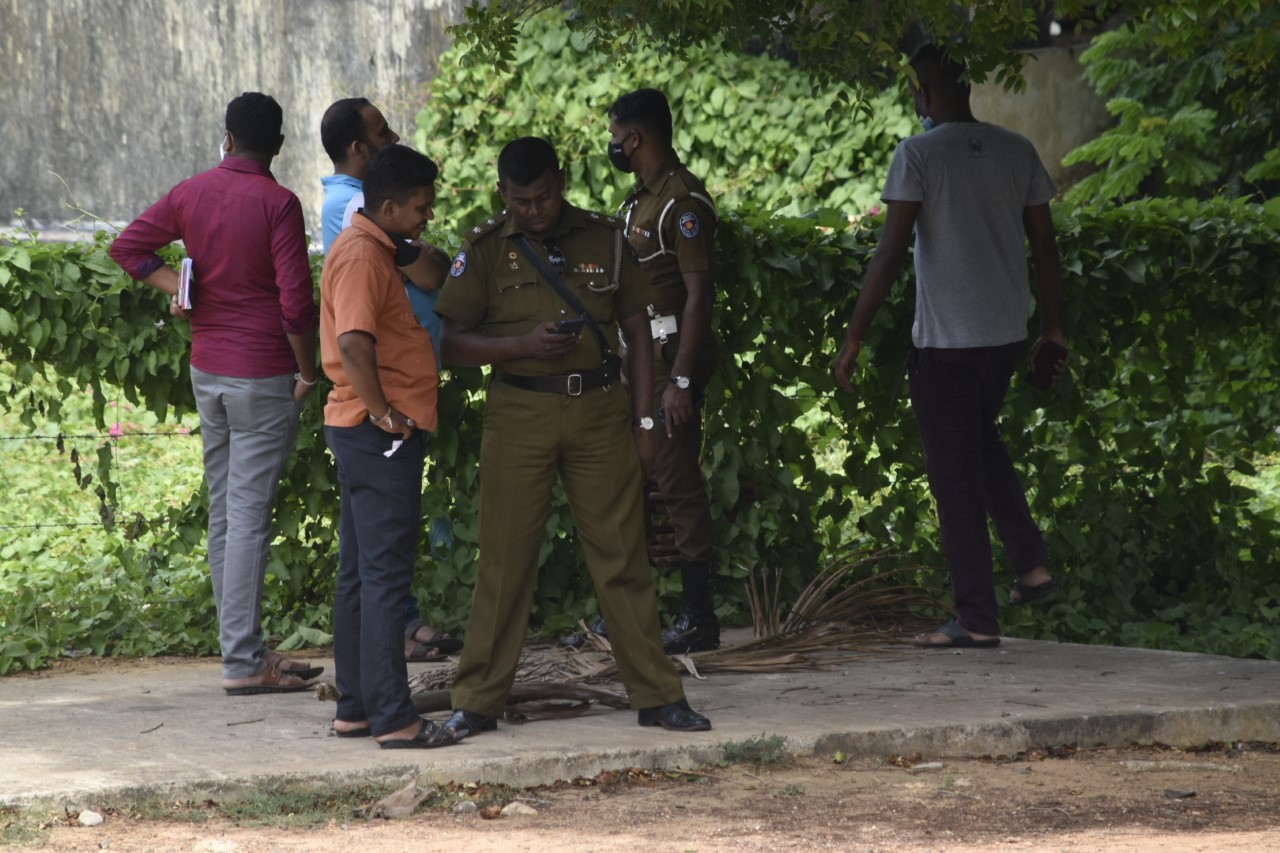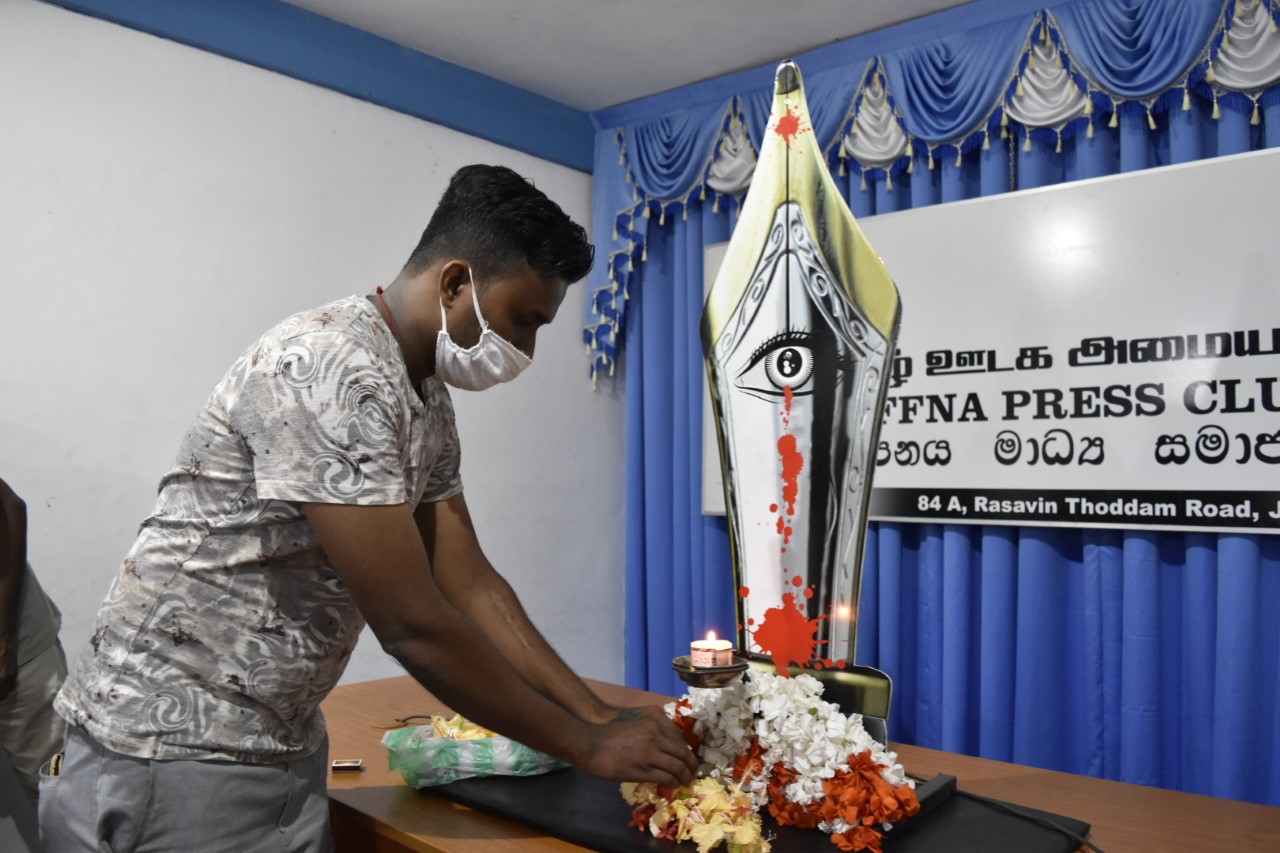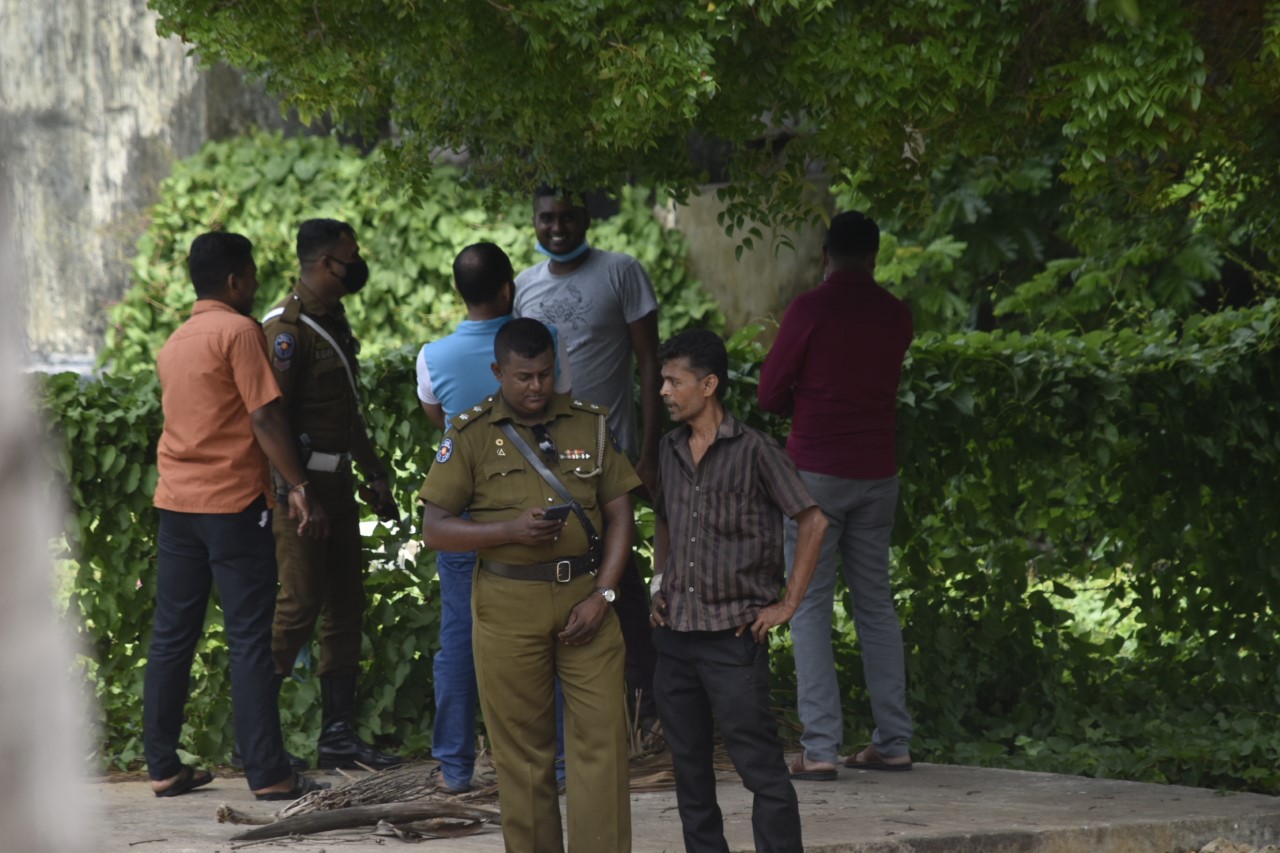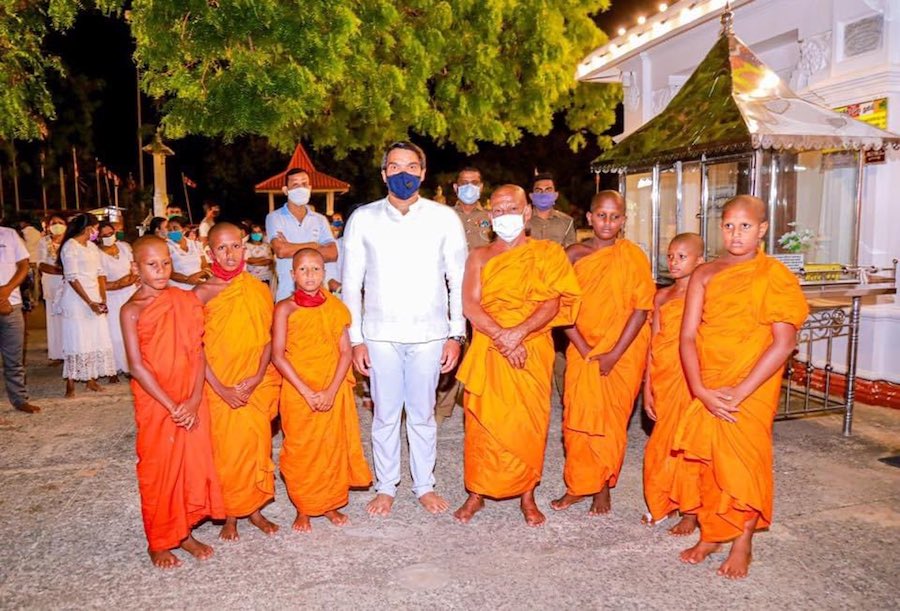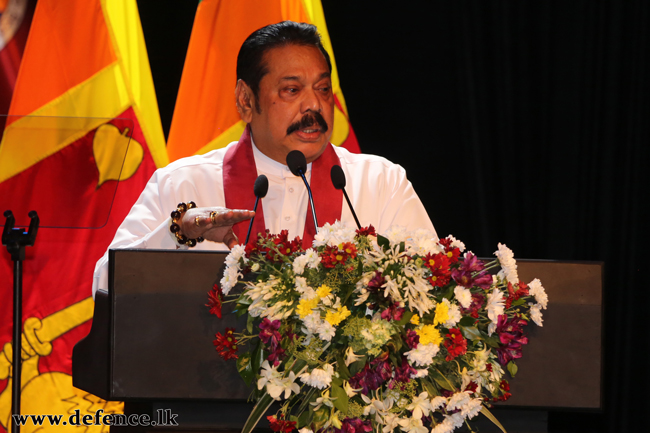History in flames: remembering the burning of Jaffna Library
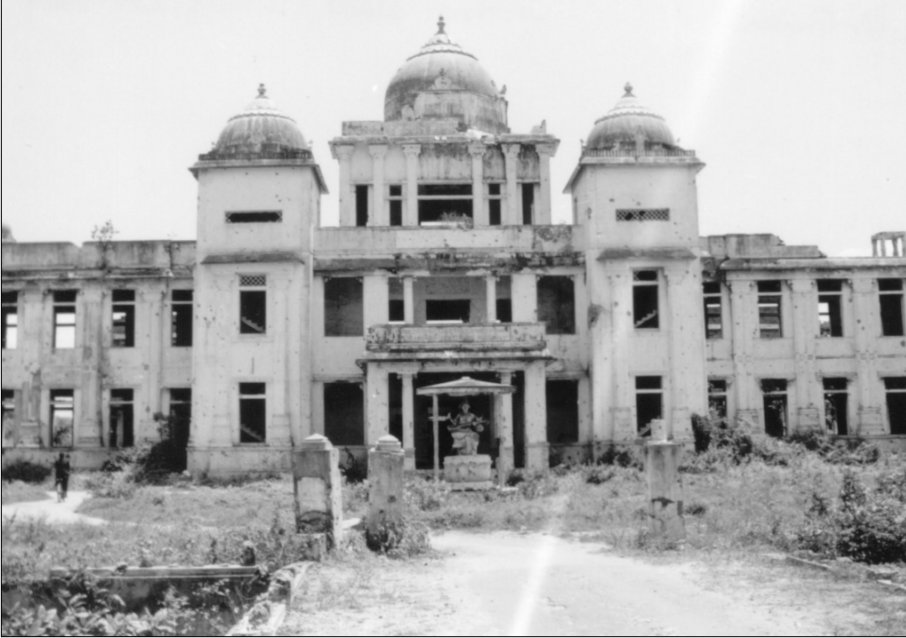
31 May 2020
At midnight on May 31, 1981, the Jaffna Public Library, the crucible of Tamil literature and heritage, was set ablaze by Sri Lankan security forces and state-sponsored mobs. The burning has since been marked by Eelam Tamils as an act of genocide.
Over 95,000 unique and irreplaceable Tamil palm leaves (ola), manuscripts, parchments, books, magazines and newspapers, housed within an impressive building inspired by ancient Dravidian architecture, were destroyed during the burning. Some texts that were kept in the library, such as the Yalpanam Vaipavamalai (a history of Jaffna), were literally irreplaceable, being the only copies in existence. It was one of the largest libraries in Asia.
The destruction took place under the rule of the UNP at a time when District Development Council elections were underway, and two notorious Sinhala chauvinist cabinet ministers - Cyril Mathew and Gamini Dissanayake - were in Jaffna. Earlier on in the day, three Sinhalese police officers were killed during a rally by the TULF (Tamil United Liberation Front).
Nancy Murray, a western author, wrote at the time ''uniformed security men and plainclothes thugs carried out some well organised acts of destruction”.
"They burned to the ground certain chosen targets - including the Jaffna Public Library, with its 95,000 volumes and priceless manuscripts…no mention of this appeared in the national newspapers, not even the burning of the library, the symbol of Tamils' cultural identity. The government delayed bringing in emergency rule until 2 June, by which time the key targets had been destroyed."
The burning continued unchecked for two nights.
Homes and shops across Jaffna town were also set alight by the mob, including the TULF headquarters and the offices of the Eelanadu newspaper.
Virginia Leary wrote in Ethnic Conflict and Violence in Sri Lanka - Report of a Mission to Sri Lanka on behalf of the International Commission of Jurists, July/August 1981, that “the destruction of the Jaffna Public Library was the incident, which appeared to cause the most distress to the people of Jaffna."
The Movement for Inter-racial Justice and Equality said in a report, after sending a delegation to Jaffna,
"If the Delegation were asked which act of destruction had the greatest impact on the people of Jaffna, the answer would be the savage attack on this monument to the learning and culture and the desire for learning and culture of the people of Jaffna... There is no doubt that the destruction of the Library will leave bitter memories behind for many years."
 The scholar and community leader, Reverend Father David reportedly died from shock days after the incineration of his beloved institution. While his statue in the library courtyard is surrounded now by the spirit-soothing greens of local flora, his demise epitomises the loss suffered by every member of the Tamil nation alive on that day, and each generation born afterwards: the irrevocable loss of memories, of the lives and deaths of our predecessors, of the beauty they created as well as of the destruction they may have wreaked.
In 2001, then mayor of Jaffna Nadarajah Raviraj stated that the burning “is in my memory”. ''Still I feel like crying after 20 years,'' he said. Mr Raviraj was assassinated in Colombo in November 2006. Still no-one has been held accountable for his murder.
The scholar and community leader, Reverend Father David reportedly died from shock days after the incineration of his beloved institution. While his statue in the library courtyard is surrounded now by the spirit-soothing greens of local flora, his demise epitomises the loss suffered by every member of the Tamil nation alive on that day, and each generation born afterwards: the irrevocable loss of memories, of the lives and deaths of our predecessors, of the beauty they created as well as of the destruction they may have wreaked.
In 2001, then mayor of Jaffna Nadarajah Raviraj stated that the burning “is in my memory”. ''Still I feel like crying after 20 years,'' he said. Mr Raviraj was assassinated in Colombo in November 2006. Still no-one has been held accountable for his murder.
 Despite Tamil attempts to memorialise the catastrophic event, by keeping part of the burnt wreckage preserved, the Sri Lankan government allegedly insisted on ensuring all areas of the building were completely rebuilt, leaving no signs of the damage done.
Yet, in 2010 the library was once again vandalised by a group of Sinhalese tourists. The Sinhalese group had attempted to gain access to the library whilst it was closed for an All Ceylon Medical Association seminar that weekend. Denied entry the “tourists reacted by running amok” said the BBC, “breaking some of the shelves and throwing books on the ground”.
They also went on to vandalise a statue of veteran Tamil politician S J V Chelvanayagam, remembered across the Tamil nation for spear heading the Vaddukoddai resolution.
In December 2016, an ‘apology’ for the burning, by current Sri Lankan Prime Minister Ranil Wickremesinghe, was criticised - after initially receiving praise as a step towards reconciliation; the offhand manner in which it was delivered revealing a marked disregard for how deeply Tamils on the island continue to mourn the burning.
Despite Tamil attempts to memorialise the catastrophic event, by keeping part of the burnt wreckage preserved, the Sri Lankan government allegedly insisted on ensuring all areas of the building were completely rebuilt, leaving no signs of the damage done.
Yet, in 2010 the library was once again vandalised by a group of Sinhalese tourists. The Sinhalese group had attempted to gain access to the library whilst it was closed for an All Ceylon Medical Association seminar that weekend. Denied entry the “tourists reacted by running amok” said the BBC, “breaking some of the shelves and throwing books on the ground”.
They also went on to vandalise a statue of veteran Tamil politician S J V Chelvanayagam, remembered across the Tamil nation for spear heading the Vaddukoddai resolution.
In December 2016, an ‘apology’ for the burning, by current Sri Lankan Prime Minister Ranil Wickremesinghe, was criticised - after initially receiving praise as a step towards reconciliation; the offhand manner in which it was delivered revealing a marked disregard for how deeply Tamils on the island continue to mourn the burning.

"They burned to the ground certain chosen targets - including the Jaffna Public Library, with its 95,000 volumes and priceless manuscripts…no mention of this appeared in the national newspapers, not even the burning of the library, the symbol of Tamils' cultural identity. The government delayed bringing in emergency rule until 2 June, by which time the key targets had been destroyed."
"If the Delegation were asked which act of destruction had the greatest impact on the people of Jaffna, the answer would be the savage attack on this monument to the learning and culture and the desire for learning and culture of the people of Jaffna... There is no doubt that the destruction of the Library will leave bitter memories behind for many years."










